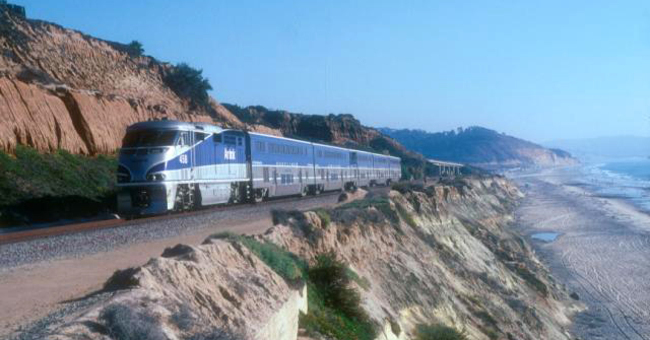
The 2012 transportation budget passed by a subcommittee of the House Appropriations Committee yesterday cut all high-speed rail funding and slashes Amtrak’s operating grant by 60 percent. What's more, it forbids Amtrak from using that money to fund short corridors.
Ridership on those short corridors grew five percent in the last year [PDF]. Twenty-seven train lines, including several in and out of Chicago, would suddenly see their federal funding disappear, if the House budget were to becomes law. That would only leave the Northeast Corridor and a handful of cross-country routes; half Amtrak's ridership would be cut instantly.
According to the National Association of Railroad Passengers, a rail advocacy group, the danger goes further than just the short corridors. The organization asserts that "the bill really would kill all of Amtrak because loss of the short corridors would cut revenues and balloon costs for Northeast Corridor and national network (overnight) trains... Overhead costs—such as for station facilities and maintenance back shops—which now are shared among routes would be dumped on the surviving trains. For example, the Texas Eagle would become the sole user of the St. Louis and Fort Worth terminals and six Illinois stations. And Amtrak’s Chicago terminal costs would be borne solely by eight overnight trains."
NARP says this bill overrides "ongoing negotiations among states and Amtrak aimed at complying with Amtrak’s 2008 reauthorization law—and overrides that law’s October 2013 target date for “equal treatment” of all states as to what they must pay for short corridors."
The House GOP proposal to privatize the Northeast Corridor has a section devoted to "state-supported" or short corridors. One plank of the plan involves "redirecting funds from Amtrak to state DOTs." It seems that without any other elements of the plan in place -- from initiating a competitive procurement process to holding negotiations with host freight railroads -- the House is trying to move forward with just one piece: the part about de-funding Amtrak. A haphazard approach like this will certainly violate the first goal laid out in the privatization plan: to maintain current levels of service.
Meanwhile, the High-Speed and Intercity Passenger Rail program, one of President Obama's signature initiatives, which he hoped would extend high-speed rail to 80 percent of the country in 25 years, was zeroed out. Thirty-nine states have applied for funds, but much of the attention has focused on the three states - Wisconsin, Ohio, and Florida - which have rejected them. NARP said the elimination of this program is devastating to the effort to bring U.S. interstate transportation up to the level seen in the rest of the developed world, setting that movement "back by decades" and "severely undermining America's ability to stay globally competitive."
Luckily this bill -- like just about everything else introduced in Congress these days -- appears destined for gridlock. If the two houses and the president ever agree on a 2012 budget, you can be sure that some of the programs that the House is trying to cut will make their way back into the final budget.





